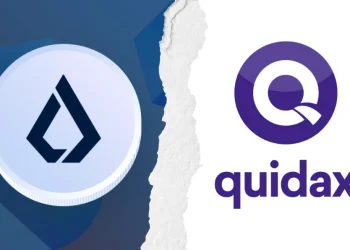The arrival of ChatGPT on WhatsApp marks a significant shift in the AI-powered chatbot space, as it brings OpenAI’s advanced conversational capabilities to a platform that dominates communication in key markets worldwide. This move could affect Meta’s plans to dominate the AI assistant market, particularly in regions where WhatsApp serves as a primary communication tool for businesses and individuals. These regions include India, Brazil, and Mexico, some of the largest user bases for WhatsApp globally.
OpenAI’s Expansion into WhatsApp
OpenAI has launched a dedicated WhatsApp account for ChatGPT, reachable at 1-800-CHATGPT (or 1-800-242- 8478). This rollout aims to make conversational AI more accessible to a global audience. It highlights OpenAI’s intent to penetrate markets where WhatsApp is deeply ingrained in daily communication habits. The service lets users chat with ChatGPT directly, broadening its reach and use cases.
Meta AI’s Current Standing
Meta has positioned its AI assistant, Meta AI, as a key player in the consumer chatbot space. According to Ahmad Al-Dahle, Meta’s Vice President of Generative AI, Meta AI is on track to become the world’s most-used AI assistant by the end of the year. It already boasts nearly 600 million monthly active users across 43 countries and supports a dozen languages. India and Mexico have emerged as two of the largest markets for Meta AI, with promising retention and engagement rates.
The Competitive Edge of ChatGPT
Despite Meta’s vast distribution network through its apps like WhatsApp, Instagram, and Facebook, ChatGPT remains the most popular conversational AI due to its higher accuracy, multi-modal capabilities, and extensibility. Arun Chandrasekaran, a distinguished VP analyst at Gartner, notes that while Meta AI may continue to grow within Meta’s ecosystem, OpenAI enjoys significant mindshare and a strong paid customer base.
Implications for Meta AI’s Growth
Experts believe that the entry of ChatGPT on WhatsApp could limit Meta AI’s growth. The challenge lies in the overlap of target users and the increased options available to them. While Meta’s integrated AI may benefit from its seamless presence within its apps, OpenAI’s reputation and standalone offerings pose a serious challenge.
Revenue Implications
Currently, WhatsApp does not charge users for conversations with businesses through its public API. This applies to ChatGPT as well, where user-generated queries will not result in any charges. Aniketh Jain, founder of Fyno, explains that this model creates a grey area for AI chatbots like ChatGPT that do not fit neatly into WhatsApp’s existing business messaging categories of service, utility, marketing, and authentication.
Meta’s Potential Strategy Shift
Experts suggest that Meta may pivot its strategy to address this evolving category of AI chatbots. By creating a separate revenue model for chatbot interactions, Meta could potentially monetize these conversations. This could involve charging businesses or users for specific types of chatbot interactions that fall outside traditional business messaging.
Moving Forward
The competition between Meta AI and ChatGPT on WhatsApp sets the stage for a significant shift in the chatbot market. While Meta benefits from its vast ecosystem and user base, OpenAI’s reputation and innovation make it a formidable competitor. How Meta adapts its strategy will be crucial in determining its success in the AI assistant space.















